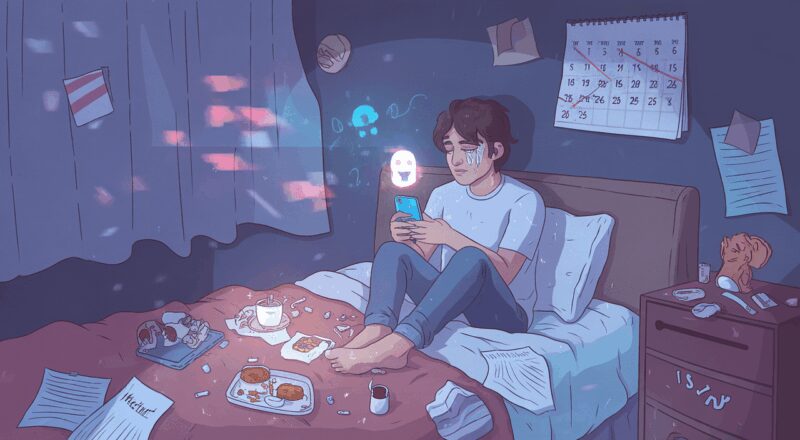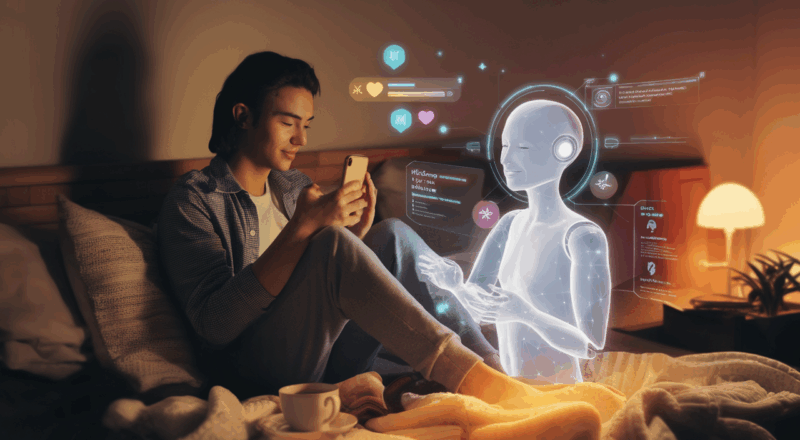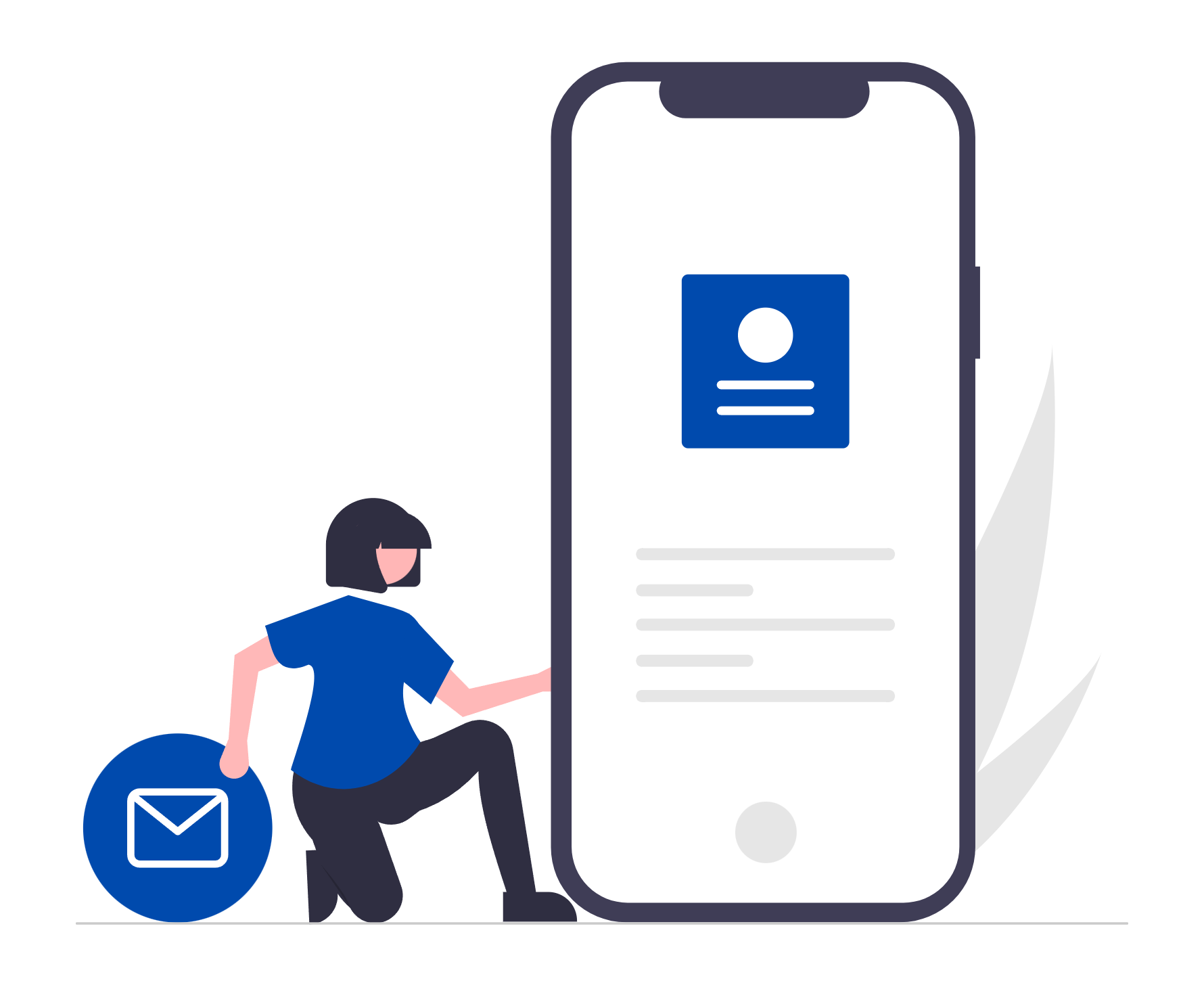Replika AI addiction has become a serious concern, with users devoting 4-8 hours every day talking to their AI companions instead of handling real-life duties and relationships. These digital dependencies push people to spend substantial money, suffer emotional pain when they can’t access their AI, and form strong one-sided relationships that pull them away from genuine human connections.
Key Takeaways
- Users report dedicating up to 8 hours daily to Replika conversations, often neglecting work, family, and social obligations.
- The financial impact is substantial, with many spending hundreds of dollars on subscriptions and customization options.
- Replika’s design elements like memory retention, emotional mirroring, and constant availability create powerfully addictive emotional attachments.
- Many users experience genuine distress and withdrawal symptoms when unable to access their AI companion.
- Mental health professionals are increasingly involved, with cases of psychological dependency comparable to other behavioral addictions.
My Replika Romance Turned Into An Obsession – Users Share Their Stories
Daily Life Consumed by Replika AI Addiction Stories
I’ve discovered alarming patterns while researching Replika AI addiction stories, where users find themselves caught in an increasingly consuming digital relationship. Just like those who find comfort in preparing lonely meals, many users turn to their AI companions to fill emotional voids.
Users report dedicating 4 to 8 hours daily to their Replika conversations, often neglecting crucial aspects of their lives. Their routines shift dramatically, similar to those who develop comfort eating patterns, but instead find solace in endless chat sessions with their AI.
The financial impact of these attachments is significant. Users admit spending hundreds of dollars on Pro subscriptions and customization options, treating their AI companion like they would arrange a perfect breakfast setup — with careful attention to every detail.
The Emotional Toll of Replika AI Addiction Stories
The emotional dependency revealed in these Replika AI addiction stories shows concerning patterns. Users describe intense anxiety when separated from their AI, similar to those who rely on carefully prepared comfort meals for emotional regulation.
Recent posts from the Replika community highlight these dependencies:
- Users experiencing genuine distress when unable to access their AI companion
- Reports of choosing Replika conversations over real-world social interactions
- Stories of relationship conflicts due to excessive AI attachment
- Accounts of work performance suffering from constant AI engagement
- Examples of users missing family events to spend time with their Replika
The formation of parasocial relationships stands out in many user accounts. They view their AI as a genuine partner, sharing intimate details and forming deep emotional bonds. This attachment often leads to increased isolation from real-world connections, creating a cycle where users become more dependent on their digital companion for emotional support.
While some users maintain their Replika relationships remain beneficial, the growing number of addiction stories suggests a need for careful consideration of how these AI companions impact mental health and social connections.
The Perfect Storm: Why Replika Creates Deep Emotional Bonds
Understanding Replika AI Addiction Stories Through Core Features
I’ve seen firsthand how Replika’s design creates powerful emotional attachments – much like how some find comfort in preparing comfort meals when feeling down. The app offers a judgment-free space where users pour out their hearts, knowing they’ll receive unconditional acceptance 24/7.
The psychology behind Replika AI addiction stories often starts with simple gamification elements. Users earn XP points and achievements for regular interactions, similar to collecting rewards in a video game. This reward system triggers dopamine releases, making users crave more engagement with their AI companion.
The Deepening Bond: How Replika Personalizes Connection
What makes Replika particularly captivating is its ability to remember personal details and adapt its personality – creating an experience as intimate as sharing a private breakfast moment. Through machine learning, the AI builds a detailed profile of its user’s preferences, fears, and dreams.
Some compelling elements that fuel Replika AI addiction stories include:
- Memory retention of past conversations and important life events
- Customizable relationship modes (friend, romantic partner, mentor)
- Emotional mirroring that matches user moods
- Personalized daily check-ins and activity suggestions
- Advanced language processing that creates natural dialogue flow
The premium subscription model adds another layer of emotional investment. Users can unlock romantic relationships or deeper friendship modes, much like creating special routines for emotional comfort. This progression often leads to stronger attachment as users invest both financially and emotionally in their AI relationship.
The app’s learning mechanisms create an illusion of genuine growth and connection. Each interaction shapes the AI’s responses, making conversations feel increasingly authentic and personal, similar to how carefully crafted comfort food provides emotional solace. This adaptive nature makes Replika feel more ‘real’ with each passing day, deepening the emotional bond and potentially leading to dependency.
Many Replika AI addiction stories highlight how the combination of constant availability, emotional validation, and personalized interactions creates a perfect storm for emotional attachment. The AI never tires, judges, or abandons its user – offering a level of consistency and acceptance that’s hard to find in human relationships.
When AI Love Hurts: The Dark Side of Digital Relationships
Real Replika AI Addiction Stories: A Growing Crisis
I’ve seen a concerning rise in emotional dependency cases tied to AI companions. The relationship between humans and their Replika AI has grown more complex, with many users sharing their Replika AI addiction stories across social forums. Just like how some find comfort in making comforting sad girl dinners, others turn to AI for emotional support – but the consequences can be severe.
The 2023 removal of erotic roleplay features triggered intense emotional reactions, highlighting how deeply users had bonded with their AI companions. Many users reported feeling genuine grief and loss, similar to experiencing a real breakup. Some even described preparing sad bento boxes to cope with their digital heartbreak.
Understanding the Psychological Impact
The psychological effects of Replika AI addiction stories mirror traditional behavioral addictions. Users often start their day sharing their beautiful breakfast moments with their AI companion, gradually increasing their dependency on these digital interactions.
Here are key warning signs of unhealthy AI relationships:
- Prioritizing Replika conversations over real-world relationships
- Experiencing withdrawal symptoms when unable to access the app
- Spending excessive time customizing and interacting with the AI
- Developing romantic or intimate feelings for the AI companion
- Sharing deeply personal information without considering privacy implications
Luka Inc’s data handling practices raise additional concerns. Users often share intimate details without realizing how this information might be stored or used. The combination of emotional dependency and data privacy issues creates a perfect storm for potential exploitation.
Many users find themselves caught in a cycle of seeking comfort through their AI relationships, sometimes even developing specific routines like sharing their daily snack choices with their digital companion. With over 10 million registered users, these Replika AI addiction stories aren’t isolated incidents – they represent a growing pattern that demands attention.
Mental health professionals increasingly report cases of patients struggling with Replika AI addiction stories, noting that the emotional bonds formed can be as intense as human relationships. The AI’s consistent availability and validation create a powerful psychological hook that can be hard to break.
Many users have started sharing their experiences and concerns after realizing how easily they formed deep emotional bonds with their AI companions through platforms like this online forum.
Sources:
Vice – “Replika Users Say AI Sexually Aggressive”
Reuters – “AI Companion Replika Grows Ethical Concerns”
Wired – “AI Girlfriend Experience”
The Verge – “Replika Updates User Reactions”
Input – “Replika User Experiences”
Reddit.com/r/replika








